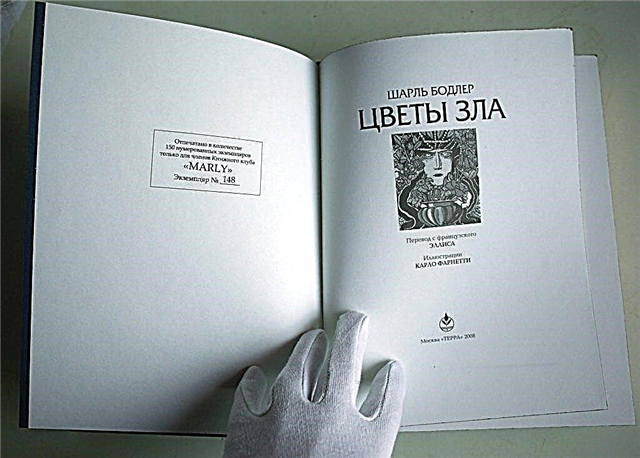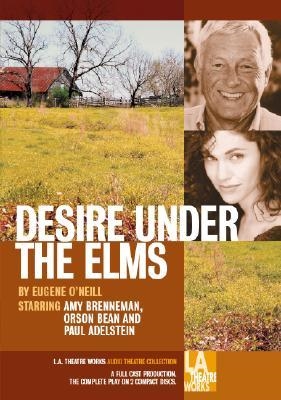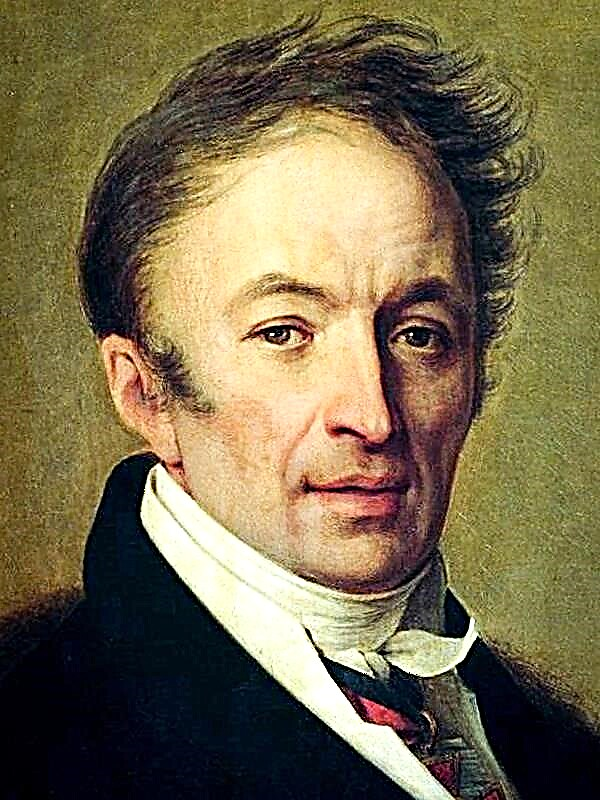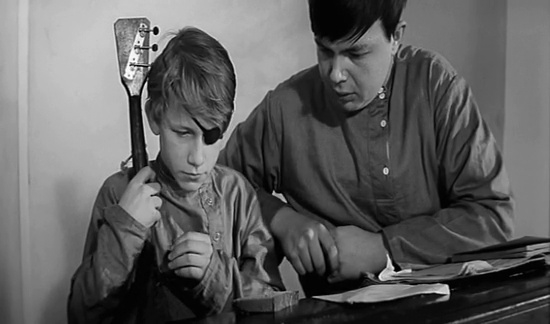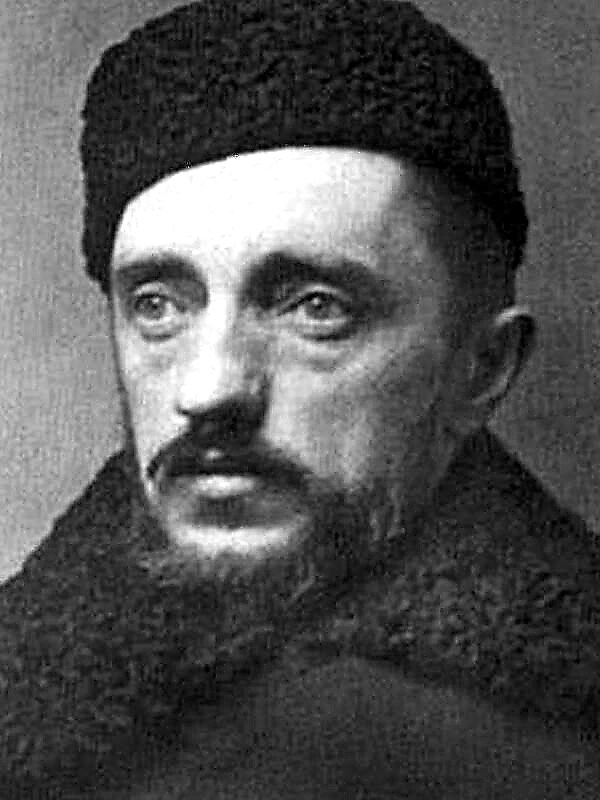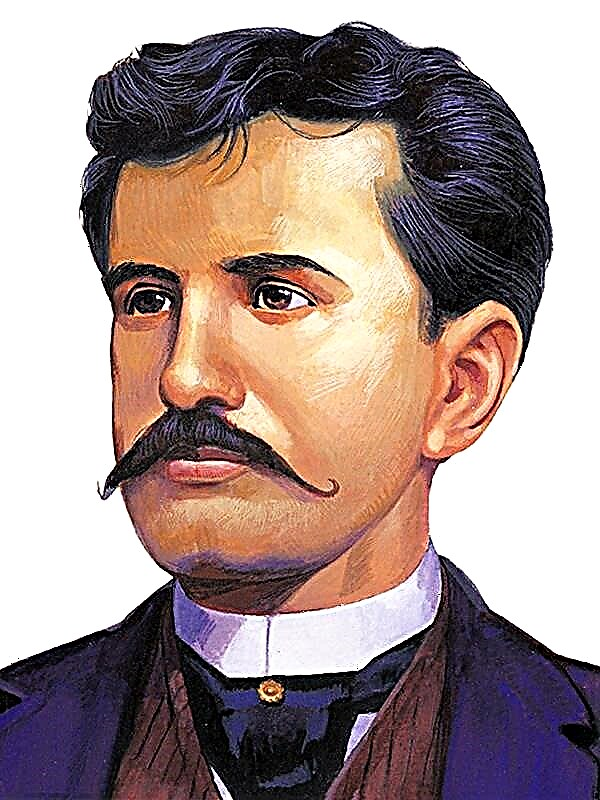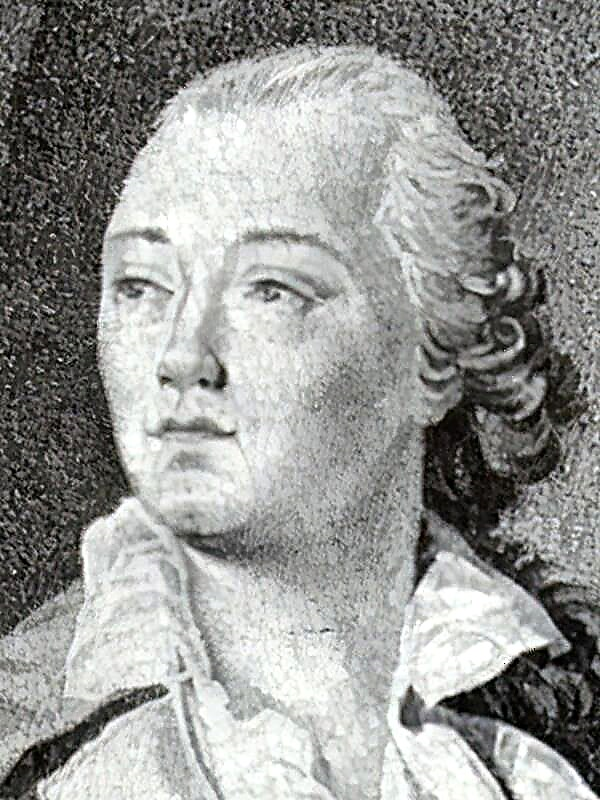The action takes place in England in 1850. Young London-based artist Walter Hartright, on the recommendation of his friend, Italian professor Peski, gets a place as a painting teacher at Limmerridge in Cumberland, on the estate of Frederick Fairley, Esq. Before leaving, Walter comes to say goodbye to his mother and sister, who live in the suburbs of London. Returning home on a late hot evening, he unexpectedly meets a strange woman, dressed up and down in white on a deserted road. They continue the journey together. The mention of Hartwright about the places where he will go, causes a stranger unexpected excitement. She speaks lovingly of Mrs. Fairley, the late owner of Limmeridge. Then, with anger and fear, he recalls a baronet from Hampshire, without mentioning, however, his name. Walter helps a stranger catch a keb and almost immediately after her departure he sees a stroller with two riders asking about a “woman in white”. They are looking for her to return to the madhouse, from where she escaped.
Walter Hartwright arrives in Limmeridge, gets acquainted with its inhabitants. This is Marian Golcombe, the daughter of the late Mrs. Fairley from her first marriage, an ugly, but charming and energetic brunette, her mother's sister Laura Fairley, a gentle and gentle blonde, and Mr. Frederick Fairley, their uncle, a bachelor and a terrible egoist, the one who suggested Walter's job. Walter tells Marian about his meeting with a woman in white, and she, intrigued, finds in her letters to her mother a mention of the girl Anna Katerik. Mrs. Fairley became attached to the girl because of her resemblance to Laura, and little Anna, answering her patroness with fervent love, swore in her honor to walk always only in white. Here, William realizes the strange feeling that he had more than once seen when looking at Laura: a woman in white was surprisingly reminiscent of Laura, who had only lost weight and turned pale or survived grief. Marian and Walter keep their discovery a secret. Meanwhile, as often happens, the teacher and student, Walter and Laura, fell in love. But they do not talk about their love. They are separated by the abyss of social and property inequality, because Laura is noble and rich, she is the heiress of Limmeridge. And most importantly, Laura is engaged to the man her father chose - this is Baronet Sir Percival Glide, the owner of a large estate in Hampshire. This is reported to Walter by Marian, and at the words “Baronet” and “Hampshire” he recalls the incoherent speech of the woman he had once met in white. But here Hartwright sees her again at the Limmeridge cemetery - Anna Katerik washes a white marble monument on Mrs. Fairley’s grave. In a conversation with Walter (and a day earlier in an anonymous letter to Laura, who had greatly alarmed her), Anna warns Laura of her marriage to Sir Percival Glide, who seems to her the embodiment of evil. Moreover, it turns out that it was he who imprisoned Anna in a madhouse. Saying goodbye to Laura, the dejected Walter returns to London, and then leaves for a long, dangerous archaeological expedition to Central America.
Marian forces Laura, a fiancé who came to Limmeridge, to give explanations about Anna, and he submits a letter to Mrs. Katerik, Anna's mother, in evidence that she acted with her consent and for the benefit of her daughter. Until the last minute, Marian and Laura hope that something will hinder the wedding, but a miracle does not happen. Percival Glide and Laura Fairley are married in the church of Limmeridge and go on a honeymoon to Italy. Six months later, they return to England and settle in Blackwater Park, the Glide estate, and Marian Golcombe arrives there. Along with the couple Glide, another married couple arrives from Italy - the Count and Countess Fosco. Countess Fosco, aunt of Laura, once absurd and conceited, is now devoted to her husband with her soul and body, from which she literally does not take her eyes, as if hypnotized, catches his every word and continuously twists small pachitos for him. Count Fosco is extremely thick, invariably polite, very amiable, constantly gives attention to his wife, loves white mice, which he carries with him in a large cage. But an extraordinary strength of spirit is felt in him (“if, instead of a woman, he married a tigress, he would tame the tigress as well,” Marian notes).
In the vicinity of Blackwater Park, Laura meets Anna Katerik, and she once again warns her, advising her not to trust her husband and fear him. And Sir Percival, desperate for money, wants to get Laura to sign some papers without reading. Laura refuses. The husband threatens her, but Count Fosco manages to mitigate the situation. Groom's gloss and charm of Sir Percival have long disappeared, he is rude to his wife, mocking and reproaches her more than once for her passion for a teacher-artist (Percival guessed the secret of Laura). The Earl and his wife in every way prevent Marian from trying to contact the Fairley family attorney. They repeatedly intercept letters (once even having put a potion on some girl who was supposed to send a letter upon arrival in London). Marian suspects a conspiracy against Laura and, in order to establish herself in her assumptions, eavesdrops on the conversation between Percival Glide and Count Fosco. The conspiracy does exist, but Marian cannot resist it - by eavesdropping on a nightly conversation, she catches a cold and becomes seriously ill. Using Marian's disease, she, in accordance with the plan of Count Fosco, is transferred to a remote part of the castle, Laura is informed that she has left, and they are tricked into deceiving her, supposedly, to visit her uncle, Mr. Fairley. But in London, Laura, under the name of Anna Katerik, is placed in a madhouse, where the real Anna used to be. At the same time, the imaginary lady Glide, who appeared there, was dying in her aunt's London house. Now nothing stands between Percival Glide and the wealth of his wife.
Having recovered, Marian is trying to figure out what happened. She manages to find and with the help of bribery to free Laura - broken, left without a name and wealth. Walter returns from the expedition. Arriving to bow to Laura’s grave, he meets Marian and the changed, terribly similar to Anna Katerik Laura. Walter rents an apartment where the three of them live, and together, he and Marian help Laura gradually recover. Walter decides to give Laura her name back. Realizing that Sir Percival Glide was hiding Anna Katerik in a madhouse because he was afraid of revelations, Walter begins to find out which ones. He visits Anna's mother, Mrs. Katerik. She most definitely refuses to help Hartright bring Percival Glide to clean water, while she undoubtedly hates Glide and will be glad if Walter manages to settle accounts with him. From conversations with Mrs. Katerik, Anna’s mother, with the clerk of the Old Wellingham church, Mr. Wansborough, who had a copied book of church metrics, Walter understands that Glide’s parents' marriage was not registered, therefore, he has no rights to the title or to land holdings. At one time, Glide gained access to the sacristy and the opportunity to fake a record thanks to Mrs. Katerik, but when her husband suspected a love affair between them, Glide did not refute this assumption, fearing to reveal the true reason for his meetings with her. Subsequently, he repeatedly helped Mrs. Katerik with money. Hate for Anna and fear of her were caused by the fact that the girl dared to repeat after her mother that she knew the secret of Glide. This was enough for the poor girl to end up in a madhouse, and her speeches - whatever she said - could not be considered evidence. Sensing danger, Percival Glide strives with all his might to prevent Walter from reaching the truth, then, unaware of the existence of a duplicate, decides to burn the book of records, but he burns out himself in a church fire.
Count Fosco escapes persecution. By chance, in the theater, Walter sees the Count and notices his obvious fright at the sight of his friend Professor Peski, who does not recognize the Count (however, he could change his appearance, and years did his job). Obviously, Walter understands, Count Fosco was a member of the same secret society as Sand. The fear of the count can be explained by his apostasy, betrayal of the interests of the brotherhood and the expectation of imminent retaliation. Walter is forced to resort to the help of Sands. He leaves the professor a sealed envelope with a letter in which he exposes the count and asks to punish him if Walter does not return at the appointed hour the next day. Taking these precautions, Walter Hartwright comes to Count Fosco and forces him to write the story of the fraud committed by him and Glide. The Count, with his inherent complacency, writes enthusiastically, spending almost all night on this lesson, and the Countess prepares for her hasty departure, appearing from time to time and showing Walter her hatred of him.
Based on the discrepancy in dates: a death certificate was issued before the letter of Frederick Fairley was sent, containing a niece’s invitation to visit, Walter manages to prove that Laura is alive and Anna Katerik is buried instead. The inscription on the monument is now changed. Anna Katerik, a woman in white, after death found what she wanted: she rests next to Mrs. Fairley, whom she loved so much.
Laura and Walter get married. Their life is gradually getting better. Walter works a lot. Finding himself after some time on business in Paris, he sees the corpse of Count Fosco caught from the Seine. There are no signs of violence on the body, except for two knife cuts on the hand that concealed the stigma - the mark of a secret society the size of a small coin (Sands has the same mark on his hand). Returning to London, Walter does not find at home either Laura and her six-month-old son, nor Marian. He is given a note from his wife asking him immediately and without worrying about coming to Limmeridge. The excited Laura and Marian meet him there. After the uncle died, the family estate was taken over by Laura. And baby Walter, the young heir to the Limmeridge, which Marian holds in her arms, can now be considered one of the most generous landowners in England.

